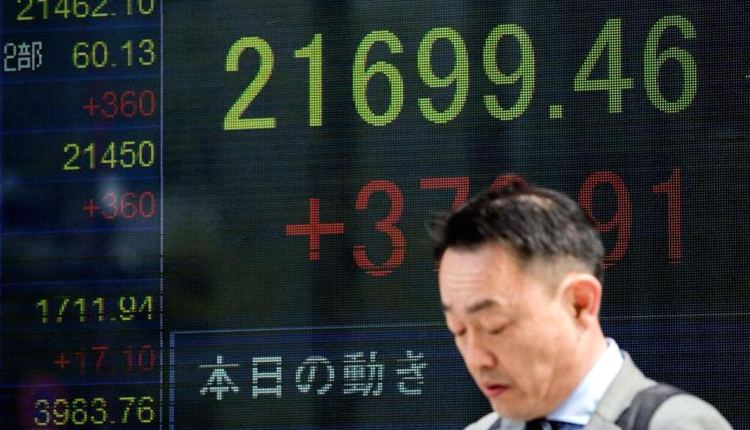Asian stocks rose on the last trading day of the month, as investors focused on a mix of ebbing geopolitical tensions, robust earnings and economic data.
South Korea’s benchmark Kospi index gained 0.62 percent, with gains seen in steelmakers, automakers and and oil-related stocks. Technology names traded mixed.
Down Under, the S&P/ASX 200 edged higher by 0.43 percent as the heavily weighted financials subindex advanced, canceling out declines in the materials and energy sectors.
Hong Kong’s Hang Seng Index recorded more convincing gains, with the benchmark advancing 1.56 percent. The financials and property sectors led gains, with mainland banks climbing after reporting net profit growth on Friday.
MSCI’s broad index of shares in Asia Pacific excluding Japan was up 0.93 percent in Asia trade.
Meanwhile, markets in Japan and mainland China were closed on Monday.
The moves higher in the region came on the back of U.S. stocks finishing the Friday session little changed despite strong earnings as technology shares pulled back.
First-quarter earnings stateside have been robust: Almost 80 percent of the 276 S&P 500 companies that had reported as of Friday beat expectations, according to Thomson Reuters I/B/E/S. Earnings from the first quarter are estimated to increase 24.6 percent compared to one year ago.
U.S. stock index futures made tentative gains during early Asian trade, with Dow Jones industrial average futures last trading higher by 54 points.
Markets in Asia had closed higher in the prior session as investors digested a historic inter-Korea summit, which saw leaders of North and South Korea pledge to achieve peace.
Sentiment was buoyed by developments on the Korean Peninsula, but “the devil is in the details (or nuclear disarmament) and economic impact may be slow to follow,” Vishnu Varathan, head of economics and strategy and Mizuho Bank, said in a morning note.
Fading geopolitical tensions following last week’s meeting also saw the Korean won firm on Monday. The currency gained as much as 1 percent earlier and last traded at 1,066.40 to the dollar.
In corporate news, Australia’s AMP on Monday said its chairwoman, Catherine Brenner, had resigned from the position, days after the departure of Craig Meller, its chief executive. The announcement came amid an inquiry into the country’s financial sector. AMP shares were down 0.37 percent, underperforming other Australian banking shares.
Elsewhere, shares of BYD listed in Hong Kong were down 5.6 percent after the automaker said it expects first-half profit to fall as much as 83 percent following a reduction in subsidies.
The dollar was steady after the yield on the 10-year U.S. Treasury note slipped below the 3 percent level it breached earlier last week.
The dollar index, which tracks the greenback against a basket of currencies, traded at 91.553 at 11:41 a.m. HK/SIN. Against the yen, the dollar was little changed at 109.10.
Oil prices were lower after declining slightly on Friday as investors waited for signs on whether the U.S. would reimpose sanctions on Iran. Brent crude futures shed 0.68 percent to trade at $74.13 per barrel and U.S. West Texas Intermediate eased 0.34 percent to $67.87.
Economic data released on Monday included China official Purchasing Managers’ Index data. The official manufacturing PMI for April came in at 51.4, topping expectations of 51.3, but below the 51.5 seen in March, Reuters said. The official services PMI came in at 54.8, above last month’s reading of 54.6.
Source: CNBC


